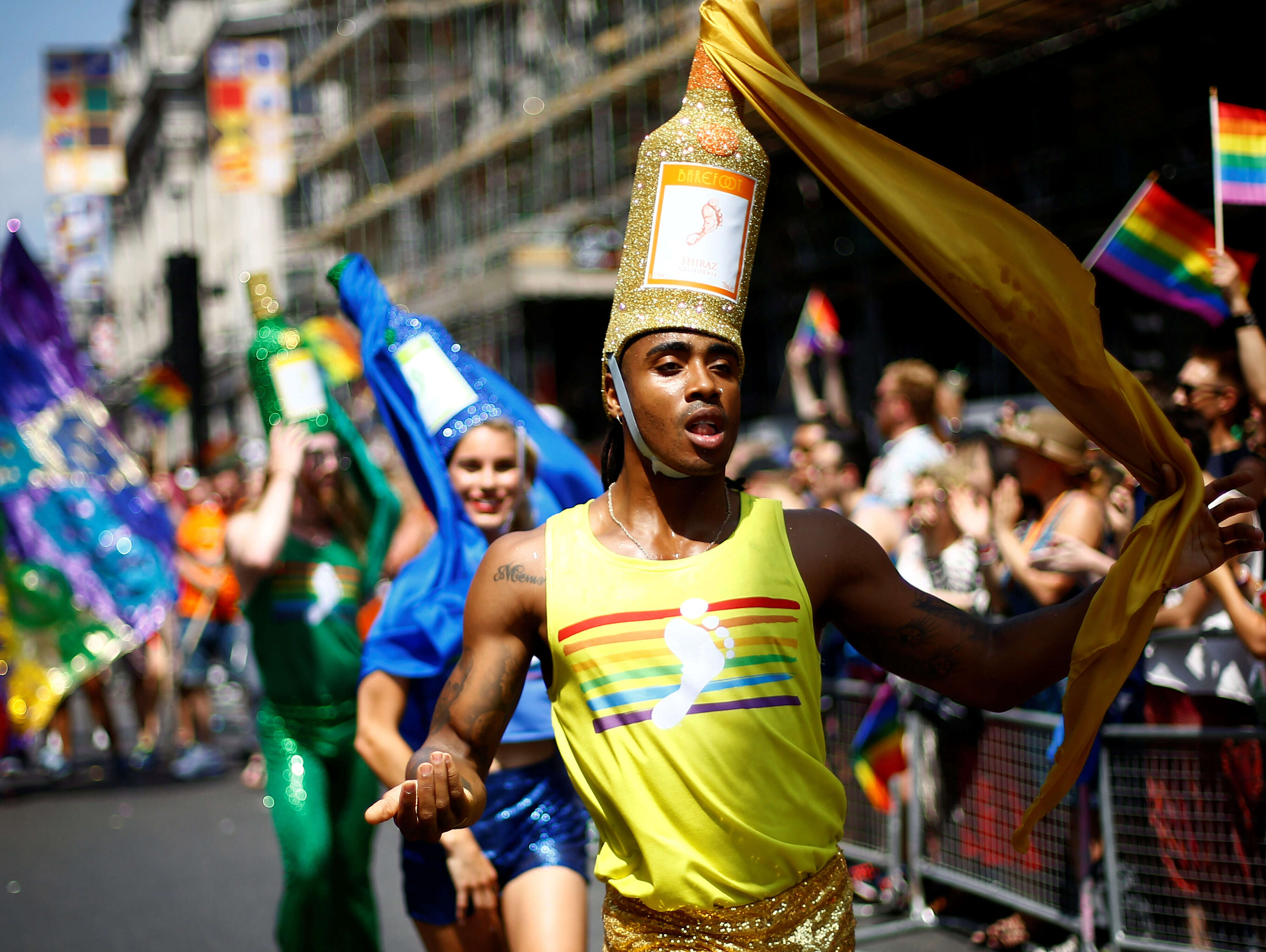
Organisers of this year’s Pride parade in London have backtracked after photographers slammed plans to heavily restrict media access as a “serious attack on press freedom”.
Pride in London emailed photographers who applied for accreditation to cover tomorrow’s parade and celebrations earlier this week to say they had made changes to “make the parade more secure” after “the incursions last year”.
“This includes significantly reducing the numbers of people with access to the route itself,” the email said.
The changes came after anti-trans protesters forced their way to the front of last year’s parade and handed out leaflets with slogans such as “transactivism erases lesbianism”.
Photographers were told media wristbands would only give “priority fast track access” to the public areas at the stages.
They would have no access backstage in Trafalgar Square, inside the parade barriers along the route, or in the parade form-up area – all areas accredited photographers were previously able to access.
This would mean jostling with the crowd in order to cover the parade as it goes by on its route from Portland Place to Whitehall, and hinder their ability to get the best shots.
Organisers are now reviewing media requests to give full parade access to all those who can prove they are accredited press, following backlash from across the industry over the past 24 hours.
Press Gazette understands a number of photographers have already had full accreditation granted today.
The restrictions did not affect all members of the press, but particularly freelance and volunteer photographers.
The National Union of Journalists said the affected photographers had been “angry” about the proposed changes, adding that it plans to continue a dialogue with organisers to ensure the same issue does not happen again next year.
Natasha Hirst, chair of the NUJ Photographers’ Council, said: “Professional news photographers should not be excluded from a public event in this way.
“This is not a security or health and safety issue, it is a serious attack on press freedom that undermines the ability of journalists to carry out their work.
“Allowing press photographers access to do their job will not compromise the safety of the parade.
“While disappointed and frustrated, the union hopes to ensure the arrangements next year are more suitable and respect the role professional photographers play.”
Human rights and LGBT campaigner Peter Tatchell tweeted: “I agree that these restrictions on press photographers by Pride In London are an attack on press freedom.
“There is no excuse or justification whatsoever for blocking them from moving freely to photograph Saturday’s Pride parade.”
Photographers’ rights campaign group I’m a Photographer Not a Terrorist (PHNAT) said in a statement it was “appalled” by the restrictions.
PHNAT campaigner Jess Hurd, who has now been given full accreditation, said: “It is not acceptable to simply ban photographers from the parade.
“I have been covering Pride as a bisexual woman and campaigning photographer for 20+ years, yet they feel fit to exclude me and my colleagues because some women decided to protest over trans issues last year.
“You cannot deny press freedom because it interferes with your corporate image.”
The British Press Photographers’ Association wrote to organisers yesterday to share “grave concerns” about the plans, which it said would “severely impede” media access to the parade.
“Photographers are accredited to the parade but not allowed to photograph the parade itself from start to finish,” the letter said.
“We cannot see the sense in this. With an estimated 1m attendees, this would be considered a major news event and very worthy of extensive coverage by all national and international media organisations and barring access will inhibit global coverage and ultimately, interest in the annual Pride event.
“Moreover a parade which promotes freedom of the individual and freedom of expression should not be restricting the freedom of the press.”
BPPA chairman Lindsey Parnaby told Press Gazette the revised accreditation terms as they stood “mean very little as photographers simply cannot capture the essence of the parade, nor operate freely or safely, while carrying heavy camera equipment through crowds of that volume, regardless of ‘fasttracking'”.
A number of individual photographers are also understood to have written to Pride in London to complain.
A statement from the Pride in London organisers said: “This year we revised our media accreditation process because of its impact on the speed and security of the parade.
“[It was] not an easy decision but it is an operational choice based on ensuring 30,000 people can pass through London safely and securely.
“Following a letter from the BPPA we are urgently reviewing our decision to see what possibilities there are and contacting people directly who are impacted.”
Picture: Reuters/Henry Nicholls
Email pged@pressgazette.co.uk to point out mistakes, provide story tips or send in a letter for publication on our "Letters Page" blog
